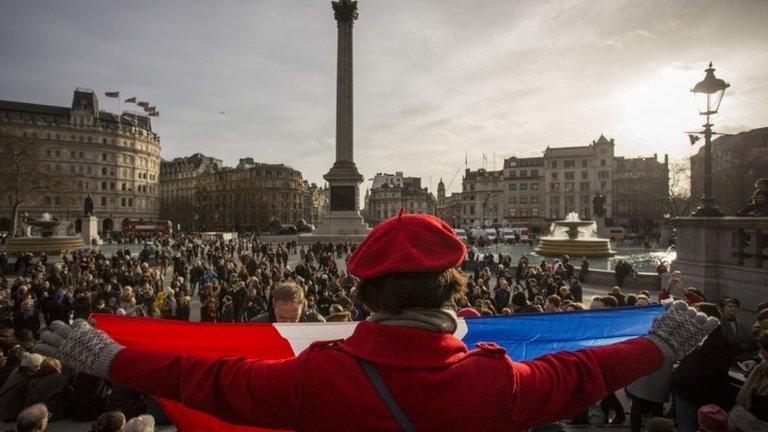Nick Clegg defends opposition to 'snoopers' charter'
- Published
Clegg: It's important to reject the threat to our values
Lib Dem leader Nick Clegg has defended his opposition to the so-called snoopers' charter, insisting "blanket" data retention is "not very British".
He said he would support new measures to boost the security services' online capabilities "as much as any chisel-faced securocrat".
But he said a balance needed to be struck between security and liberty.
His comments come as the ex-head of MI5 warned anti-terrorism laws are "no longer fit for purpose".
'Unproven'
David Cameron has raised the possibility of reviving plans - blocked by the Liberal Democrats in 2012 - for a communications data bill if the Conservatives are in majority government in May.
The prime minister also proposed introducing measures to break into the encrypted communications of suspected terrorists.
Mr Cameron has said the intelligence services need powers to store and read the contents of people's communications in the wake of the terror attacks in Paris.
But Mr Clegg told BBC One's Andrew Marr programme said: "It is not a very British thing to confer or imply guilt on the whole of the nation by retaining records of every website everyone has visited over the course of a year."
He said the plans for a communications data bill, dubbed a "snoopers' charter", were "unproven, clunky, [and] resource-intensive".
But Communities and Local Government Secretary Eric Pickles, told Sky News's Murnaghan programme, the data would only be held for a year, and could only be accessed with a warrant, adding: "I don't feel my freedom is in any way impinged by doing that."

Data laws
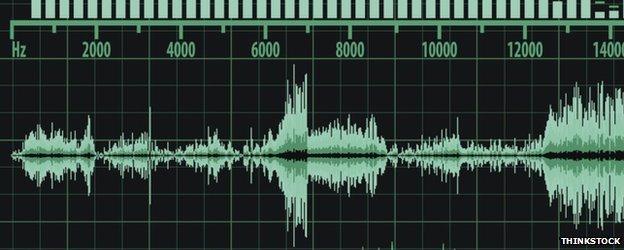
Draft Communications Data Bill 2012 - Would have extended the range of data communications companies have to store for 12 months. It would have included, for the first time, details of messages sent on social media, webmail, voice calls over the internet and gaming, in addition to emails and phone calls. Officials would not have been able to see the content of the messages without a warrant. The bill, dubbed the "snoopers' charter" by critics, was blocked by the Lib Dems
Data Retention and Investigatory Powers Act 2014-15 - Introduced as emergency legislation to maintain the requirement for phone and internet companies to log records (but not content) of calls, texts and internet use
Counter-Terrorism and Security Bill 2014-15 - Part of the bill going through Parliament would add to the Data Retention and Investigatory Powers Act to allow internet protocol (IP) address matching. This would identify the individual or the device that was using a particular IP address at any given time

In the Sunday Telegraph, external, former MI5 boss Lord Evans of Weardale argued for new laws to boost the intelligence agencies' online surveillance powers.
He said it was "much harder" than a decade ago for the security services to find out what terrorists or criminals were plotting, because they were communicating on platforms such as Facebook, WhatsApp and Snapchat.
'Indiscriminate'
Mr Clegg said the state needed to "retain the ability to intrude on the privacy" of such people but he was "not comfortable" with the "indiscriminate" retention of data regarding the internet and social media use of "every single man, woman and child in this country for a year".
The Data Retention and Investigatory Powers Act will have to be renewed after the election as the measures expire in 2016.
Mr Clegg said: "New powers will need to be put on the statute book in the next Parliament, and I will advocate them as much as any chisel-faced securocrat."
But he insisted the values of liberty and privacy, which were "fundamental to an open society", must be protected.
"I want to keep us safe. It's ludicrous this idea that people who care about our freedom don't care about our safety," he told the BBC.
Labour leader Ed Miliband has said it is important for security services to "keep up to date with technology" but it has to be "done in the right way", with "basic liberties" protected.
The party supports the Counter-Terrorism and Security Bill going through Parliament, which gives some new powers to the security services.
Future coalitions
Mr Clegg also told the programme it was "most likely" the Liberal Democrats would form part of a coalition government after May, dismissing predictions his party would lose up to half of its seats on 7 May as "silly".
The party would add "heart" to a Conservative-led government or "spine" to Labour, Mr Clegg said.
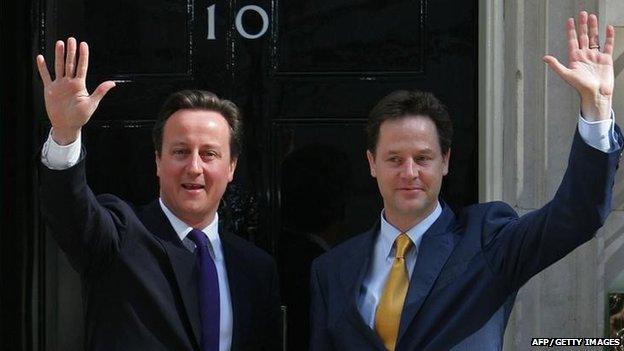
Mr Clegg has not discounted being in coalition again with the Conservatives in the event of a hung parliament
He stressed any decision on which of the two parties the Lib Dems would join in a coalition would not be based on his preferences but he rejected the idea of sitting in a cabinet with UKIP leader Nigel Farage.
Asked if he would sit with the SNP, he said: "I find it very difficult to imagine the circumstances in which I would do that."
A Conservative Party spokesman the Tories were focused on securing an overall majority to deliver "a more secure future for Britain".
When pressed on the Lib Dems' deficit-reduction plans, Mr Clegg said plans would be set out in the coming weeks but he was "confident" it would not include income tax or VAT rises.
- Published12 January 2015
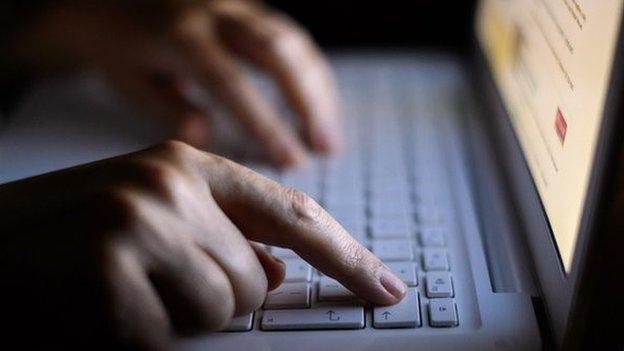
- Published13 January 2015
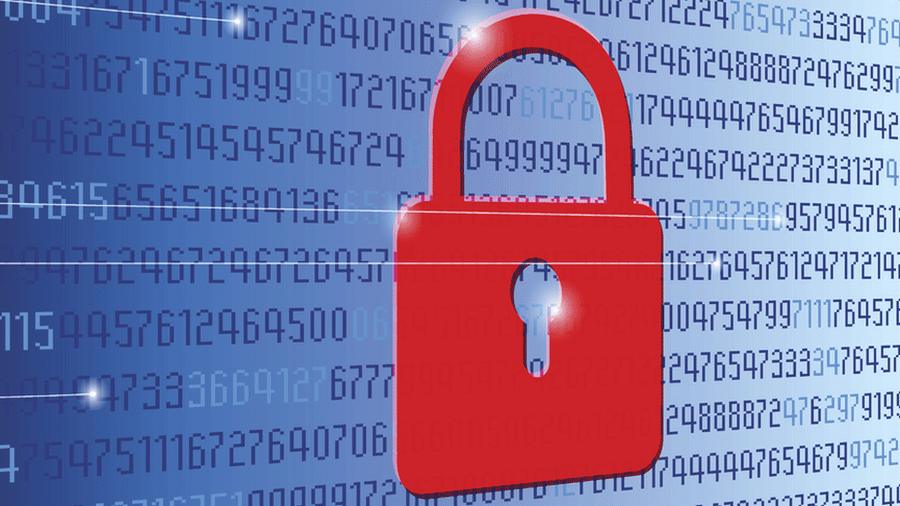
- Published12 January 2015
